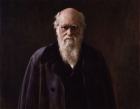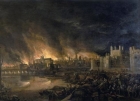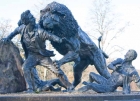Enquiries
Enquires at Foundation Stage and Key Stage 1 allow children to seek out the answers to historical questions either working with the teacher or by themselves. Read more
Sort by:
Date (Newest first) | Title A-Z
Show:
All |
Articles |
Podcasts |
Multipage Articles
-

Local History and the 2012 Olympics
ArticleClick to view -

Local history and a sense of identity
ArticleClick to view -

Looking at buildings as a source for developing historical enquiries
ArticleClick to view -

Pride in place: What does historical geographical and social understanding look like?
ArticleClick to view -

Primary History and planning for teaching the Olympics - four curricular models
ArticleClick to view -

Pull-out Posters: Primary History 70
ArticleClick to view -

Resourcing primary history: How to avoid going for any old thing
ArticleClick to view -

Scheme of Work: Grace O'Malley
ArticleClick to view -

Scheme of Work: Walter Tull
ArticleClick to view -

Shropshire's Secret Olympic History
ArticleClick to view -

Significant Individuals: Charles Darwin
ArticleClick to view -

Teaching black British history through local archives
ArticleClick to view -

Teaching famous people at key stage one
ArticleClick to view -

The 2014 History National Curriculum: how to get the best from heritage
ArticleClick to view -

The Coronation of King Charles III
ArticleClick to view -

The Elizabeth cake
ArticleClick to view -

The Great Fire of London and the National Curriculum
ArticleClick to view -

Thematic or topic based whole school curriculum planning
ArticleClick to view -

To boldly go: exploring the explorers
ArticleClick to view -

Towards inclusion: A study of significant figures and disability within the national curriculum
ArticleClick to view

